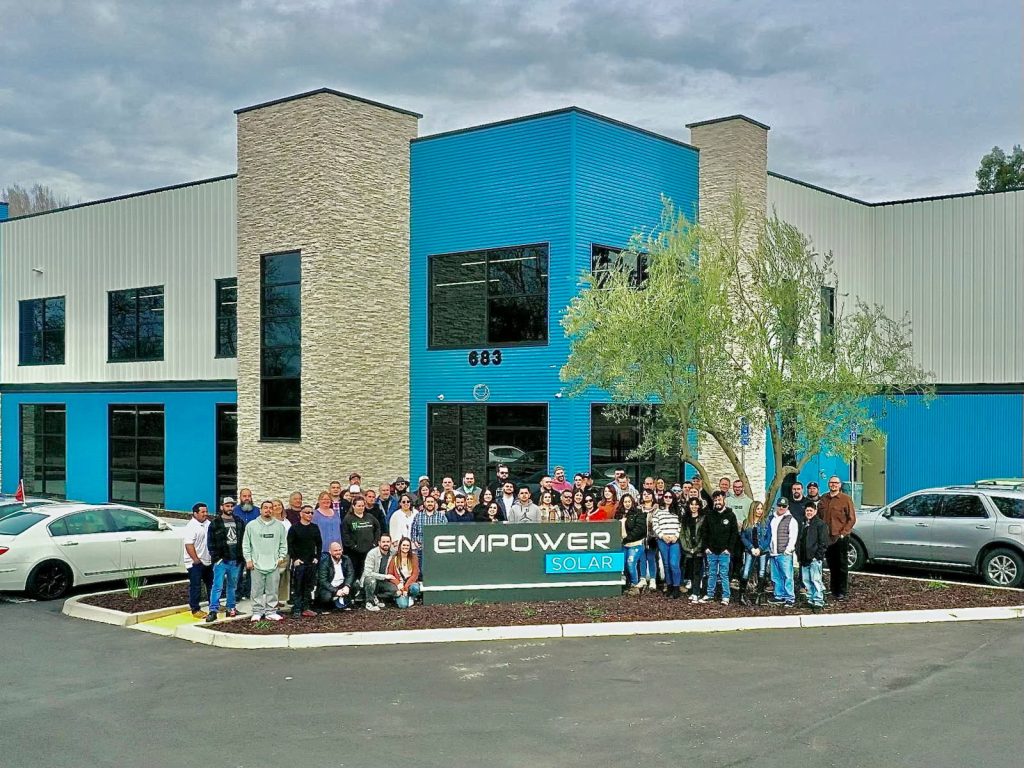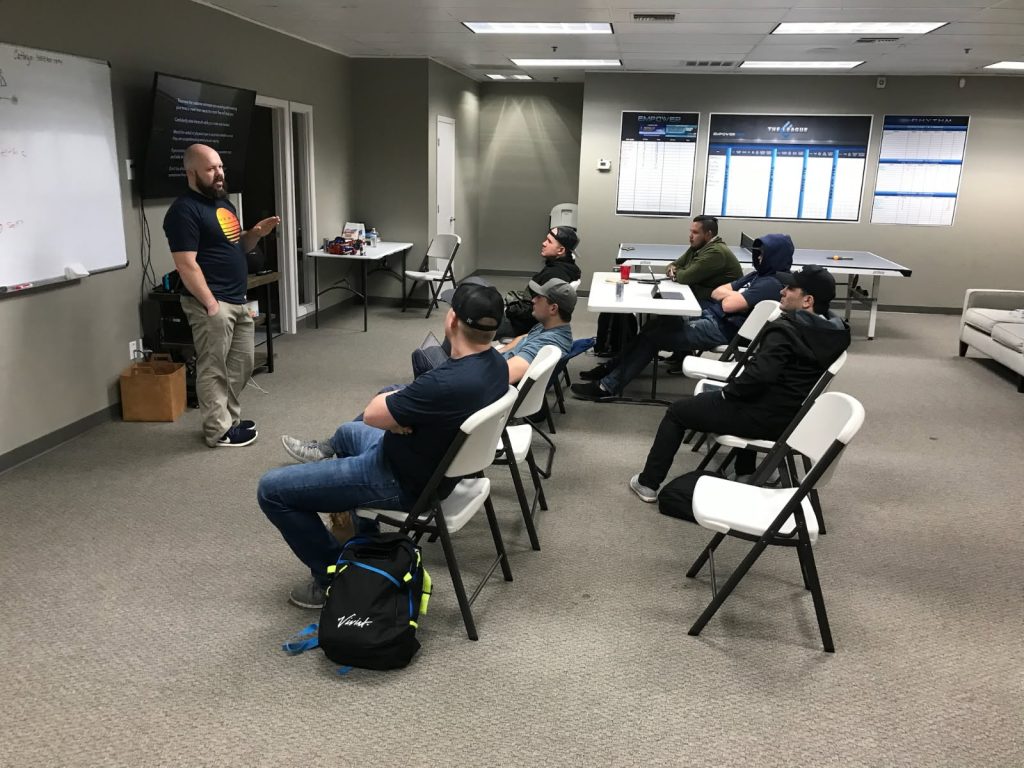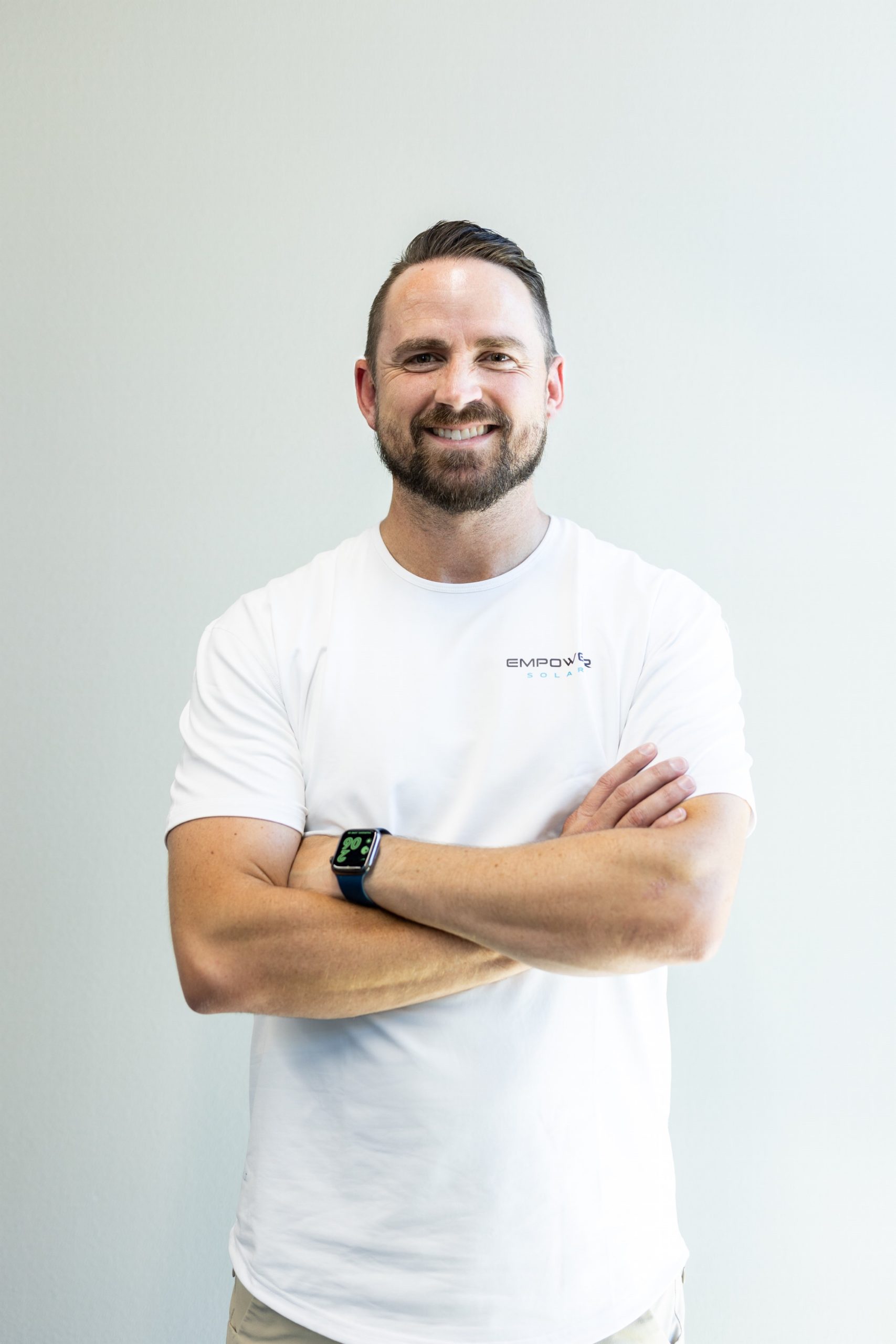Have you ever been let go from a job and wondered what to do next? When Landon Wimmer faced this exact situation in 2017, he didn’t panic. His entire sales division was eliminated after a corporate buyout, leaving him at a crossroads. For many people, a sudden job loss means stress, uncertainty, and a scramble to find the next paycheck. But Wimmer saw something different – he spotted a gap in the solar industry that no one else was filling.
“If I always do what I’ve always done, then I’ll always get what I’ve always got,” Wimmer recalls thinking after his position disappeared. While he could have easily joined another solar company, he noticed that most businesses in the industry focused solely on installations without building real relationships with their customers. This insight, combined with his years of sales experience and a growing market for solar energy, sparked an idea that would change his life.
Today, Wimmer’s company, Empower Home Services, employs 240 people across five cities. His story shows how a sudden setback can become the push you need to build something meaningful. Whether you’re thinking about starting your own business or facing an unexpected change in your career, Wimmer’s experience offers practical lessons about starting small, growing wisely, and staying focused on solving real problems for customers.

Finding Purpose in Solar
Wimmer spent years in sales before finding his true calling in 2012. “I started selling solar. It wasn’t just about making a sale anymore; I genuinely loved the idea of helping people save money while also doing something good for the environment,” he explains.
His passion for solar carried him to the position of Regional Sales Director at what was then the largest solar company in the country. But when new owners eliminated his position, Wimmer faced a crossroads.
While he had offers to join other solar companies, he noticed something important: many businesses excelled at installations but failed to build lasting relationships with customers. This insight, combined with his unexpected layoff, pushed him toward entrepreneurship.
The timing aligned with market trends. The U.S. solar industry was experiencing significant growth, with installations increasing annually in many sectors. Rising energy costs were driving homeowners to seek alternatives, creating a perfect market opportunity.
Starting Small
Wimmer’s approach to launching his business was refreshingly straightforward. He started by knocking on doors.
“My first $1,000 in sales started with door-knocking. It was about getting face-to-face with potential customers and building that initial rapport,” he shares. “Speaking directly with potential customers allows us to understand their specific needs and tailor our solutions accordingly. Solar isn’t an ‘add to cart’ kind of product; it requires education and personalized attention.”
This direct approach helped Wimmer establish a foundation of trust with early customers. He focused on educating homeowners rather than pushing sales.
“I’m not your typical ‘salesperson.’ I prefer to think of myself as an educator. I enjoy breaking down complex topics and empowering people to make informed decisions,” he says.
His market research wasn’t based on formal studies but on understanding a fundamental problem: rising energy costs. He spent time analyzing utility costs and trends, asking himself, “What problem can we solve?”
Unconventional Beginnings
What many don’t know is that Wimmer’s first “office” wasn’t an office at all. “For almost six months – well, probably more like three months – my first office space was Panera,” he reveals. With three young children at home, finding quiet space was challenging.
“That’s where I set up my company. That’s where I set up pay scales, marketing, my branding, my logos, and my website,” he explains.
As his business grew, so did his workspace needs:
- First, he rented meeting spaces by the hour – “just this brick building with nothing but maybe 40 chairs and a whiteboard”
- Next came a shared office with access to conference rooms
- About a year in, he signed a five-year lease on his first permanent office
“That new office and the long-term lease was scary,” Wimmer admits. Yet as the company expanded, they eventually occupied three separate office spaces and three warehouse units before consolidating into their current headquarters.
His first successful installation tells a similar story of humble beginnings: “The very first successful sale and installation I had with Empower was to a good friend of mine.” Without a warehouse, the equipment was delivered to Wimmer’s driveway.
“That was always a really cool story because, in the beginning, I just started out of my garage in a way. The material would get delivered to my house – the panels, the equipment, and the racking, inverters – it all went in my garage,” he recalls.

Balancing Work and Family
Starting his business wasn’t without worries. “The biggest one was, ‘Can I really pull this off?’ I mean, I’d been doing this kind of work for other companies for a decade, but doing it for myself? That felt different,” Wimmer admits.
With a family depending on him, the pressure was significant. “What if this doesn’t work?” was a question that constantly popped up. There was no safety net, no retirement plan to fall back on,” he explains.
The first year demanded incredible dedication. “My working hours were typically from 6:00 AM to 10:00 PM or 11:00 PM at night, Monday through Saturday,” Wimmer shares. “It was not uncommon for me to be putting in 60 to 80 hours a week.”
The challenge came from balancing two distinct aspects of the business. “Operations typically start around 5 or 6:00 AM… Sales, on the other hand, typically don’t start until 12 or 1:00 PM, and they go until as late as 9:00 PM.”
Balancing family life with a new business proved especially challenging. “When I started the business, my wife was pregnant with our fourth child, due in a couple of months,” Wimmer shares. Add buying a new home to the mix, and the stress multiplied.
“My wife has been my rock behind the scenes since starting this business,” he acknowledges. But the demands of entrepreneurship meant “there are days and weeks that will go by where she feels like she’s probably a single parent.”
To manage this, Wimmer created personal rules:
“I care a lot about the time that I’m not working and the time that I’m at home with the family. I am intentional about it being very productive time,” he explains. “I’ll always end my calls in the car on the way home. I’ll always try to walk in the door undistracted… When I walk in the door, my phone goes in a basket, and I try to keep my phone totally off of me until later.”
Startup Stories
Learning From Growth Challenges
Wimmer is candid about his missteps, particularly his early push for rapid growth.
“My biggest misstep was pushing for rapid growth too early. I was so focused on scaling up quickly that I didn’t pay enough attention to the underlying infrastructure and financial stability,” he shares.
This approach led to cash flow problems and operational bottlenecks. Another valuable lesson came from initially resisting bringing in financial expertise.
“I had this mindset that a CFO was a luxury I couldn’t afford, especially in the early stages. But when I finally did hire one, it was like a lightbulb went off. They helped us identify inefficiencies and implement strategies that saved us a significant amount of money!” he says.
Financial stability took even longer to achieve. Despite starting in 2017, Wimmer says, “it wasn’t until last year (2024) that I felt like we were in a healthy place as far as cash goes.”
Cash flow challenges were eye-opening. “I never understood why businesses would say, ‘I didn’t have the money to make payroll,'” he admits. “I didn’t really fully understand how that’s possible until I lived it.”
This lesson became especially clear during a period of explosive growth. “We went from $20 million in revenue in 2020 to almost $70 million in 2021, and that growth just about broke us,” Wimmer explains. “We really struggled in that growth phase to deliver a positive customer experience.”
The rapid expansion created a desperate need for staff during the pandemic, when qualified workers were scarce. “We hired anyone we could, but that hurt us because many of them couldn’t do what they said they could.”
The solution? Pausing growth to rebuild fundamentals. “For six months, we focused on implementing a quality department, creating a training department, and hiring people to fill those roles,” he says. This reset allowed for more sustainable growth moving forward.
What began as a solar installation company has evolved into something more comprehensive. Empower Home Services now offers electrical, HVAC, and roofing services alongside solar solutions. This expansion came from recognizing that customers often needed additional services alongside solar installations.
Technology played a crucial role, too. Initially, Wimmer relied on software called Sales Rabbit – “a door-knocking tool” that helped track customer interactions. But as the business expanded to work with multiple installation partners, visibility became challenging. This led him to develop Job Flow, proprietary software that the company still uses today.
Practical Advice For New Entrepreneurs
Wimmer’s story contains valuable lessons for anyone thinking about starting a business. “Start with what you have,” he advises. Whether it’s working from Panera Bread or storing inventory in your garage, the first step is simply to begin. His experience shows that you don’t need perfect conditions or significant startup capital to build something successful.
“Would you rather be a $100 million company with a 2% profit margin, or a $20 million company with a 10% margin?” Wimmer asks. This question highlights perhaps his most important lesson: prioritize solid foundations over quick expansion. When his company grew too fast, customer service suffered, and cash flow became a constant worry; only by pausing to build proper systems and hire the right people could sustainable growth resume.
The heart of Wimmer’s success came from recognizing and solving a real problem in the market. By focusing on building relationships with customers and providing education rather than just making sales, he created a business that stood out from competitors. His story demonstrates that sometimes the best business opportunities arise from unexpected setbacks.
Learn more about solar and home energy solutions at EmpowerYourHome.com
Got an awesome startup story? We’d love to hear how you turned your big idea into reality! StartUp101 is all about sharing real stories from founders like you to inspire others who are just getting started.














